[caption id=“attachment_10042761” align=“alignnone” width=“640”]
 From the boutiques of Christian Dior to Harry and Meghan’s royal wedding favours, jute is growing in popularity worldwide as demand for alternatives to plastic soars. Image Courtesy: CNN-News18[/caption] [caption id=“attachment_10042801” align=“alignnone” width=“640”]
From the boutiques of Christian Dior to Harry and Meghan’s royal wedding favours, jute is growing in popularity worldwide as demand for alternatives to plastic soars. Image Courtesy: CNN-News18[/caption] [caption id=“attachment_10042801” align=“alignnone” width=“640”]
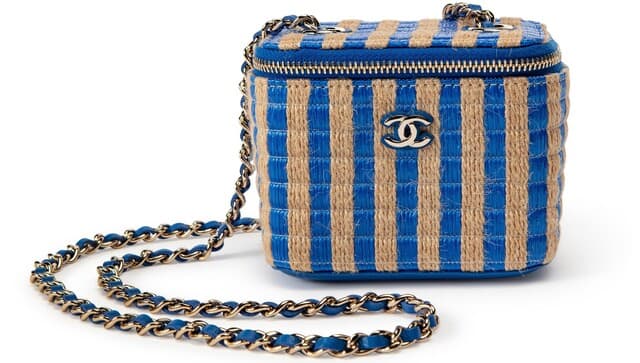 Experts are predicting the jute bag industry alone will be worth more than $3 billion by 2024 and India is desperate to capitalise on this consumer shift and seize the opportunity to revive its flagging industry. Image Courtesy: Sotheby’s[/caption] [caption id=“attachment_10042821” align=“alignnone” width=“640”]
Experts are predicting the jute bag industry alone will be worth more than $3 billion by 2024 and India is desperate to capitalise on this consumer shift and seize the opportunity to revive its flagging industry. Image Courtesy: Sotheby’s[/caption] [caption id=“attachment_10042821” align=“alignnone” width=“640”]
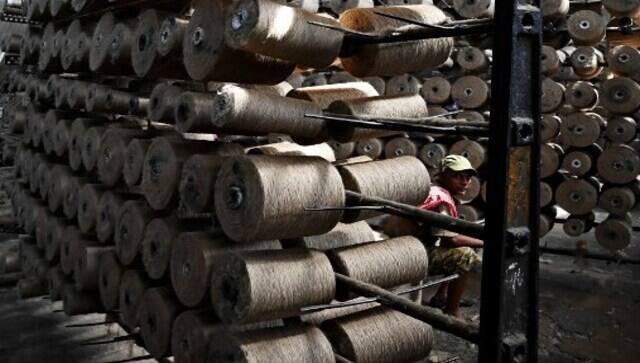 India is trying to promote jute as a fabric for a sustainable future, with the government issuing a mandate that all grains and 20 percent of sugar should be packed in jute sacks. It can cater to global demand but for that two things are needed: upgrading the skills of the people and the machinery. AFP[/caption] [caption id=“attachment_10042861” align=“alignnone” width=“640”]
India is trying to promote jute as a fabric for a sustainable future, with the government issuing a mandate that all grains and 20 percent of sugar should be packed in jute sacks. It can cater to global demand but for that two things are needed: upgrading the skills of the people and the machinery. AFP[/caption] [caption id=“attachment_10042861” align=“alignnone” width=“640”]
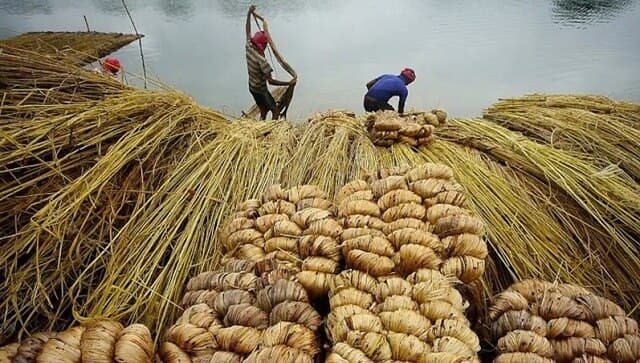 Nearly all of the world’s jute is grown in India or in Bangladesh, because of the conducive humid climate and availability of cheap labour. Image Courtesy: CNN-News18[/caption] [caption id=“attachment_10042901” align=“alignnone” width=“640”]
Nearly all of the world’s jute is grown in India or in Bangladesh, because of the conducive humid climate and availability of cheap labour. Image Courtesy: CNN-News18[/caption] [caption id=“attachment_10042901” align=“alignnone” width=“640”]
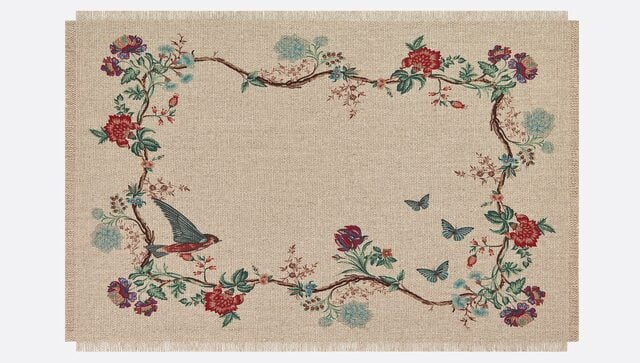 For diversified end use, the quality of the fibre has to improve, and for that high-tech machines are needed. The industry won’t be viable unless value-added products like decorative items and rugs are introduced. Image Courtesy: Dior[/caption] [caption id=“attachment_10042921” align=“alignnone” width=“640”]
For diversified end use, the quality of the fibre has to improve, and for that high-tech machines are needed. The industry won’t be viable unless value-added products like decorative items and rugs are introduced. Image Courtesy: Dior[/caption] [caption id=“attachment_10042921” align=“alignnone” width=“640”]
 The coronavirus pandemic has also thwarted hopes of restoring the lost glory of the industry – several mills have shut down and lockdowns have caused labour and raw material shortages. Image Courtesy: AFP[/caption] [caption id=“attachment_10042941” align=“alignnone” width=“640”]
The coronavirus pandemic has also thwarted hopes of restoring the lost glory of the industry – several mills have shut down and lockdowns have caused labour and raw material shortages. Image Courtesy: AFP[/caption] [caption id=“attachment_10042941” align=“alignnone” width=“640”]
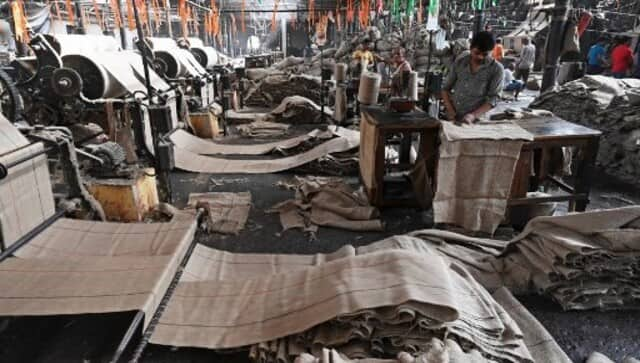 Jute producers still believe that if authorities invest, they can rebrand and reboot jute for the 21st century. Image Courtesy: AFP[/caption]
Jute producers still believe that if authorities invest, they can rebrand and reboot jute for the 21st century. Image Courtesy: AFP[/caption]
Make jute great again: Can India reboot the humble hessian for the 21 century?
FP Staff
• October 10, 2021, 21:11:17 IST
Experts predict that jute bag industry alone will be worth more than $3 billion by 2024
Advertisement
)
End of Article